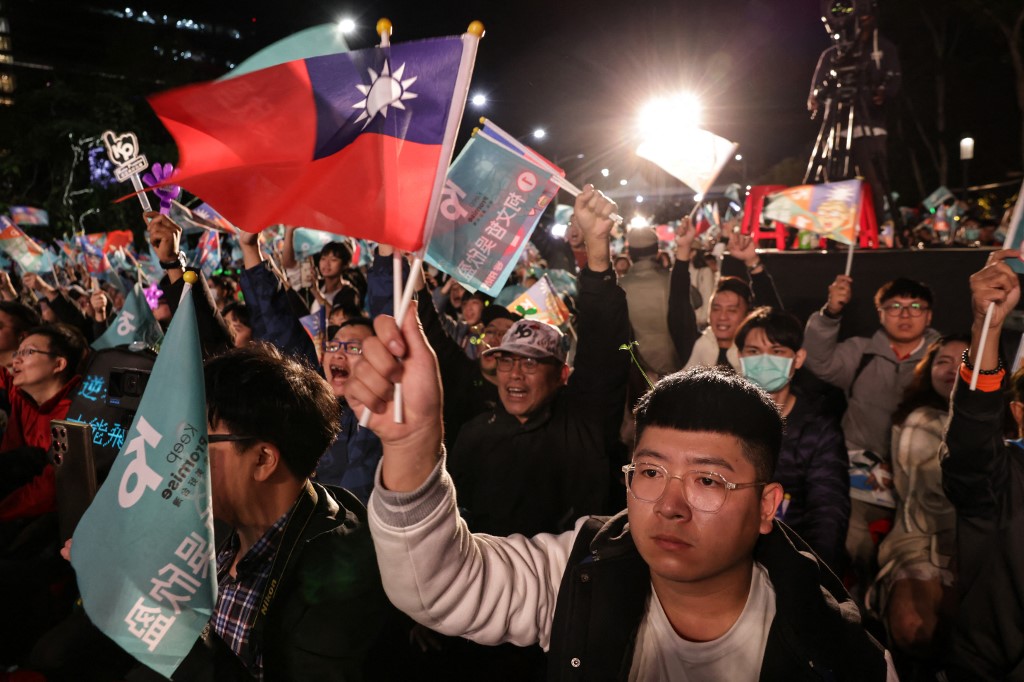
Supporters of Taiwan People’s Party (TPP) presidential candidate Ko Wen-je wait for the results of the presidential election at the TPP headquarters in Xinzhuang in New Taipei City on January 13, 2024. (Photo by I-Hwa CHENG / AFP)
The Department of Foreign Affairs (DFA) on Sunday reiterated the country’s commitment to the “One China” policy, following the election of pro-independence leader Lai Ching-Te as Taiwan’s new president.
The DFA’s statement aligns with US President Joe Biden’s announcement that the United States does not support Taiwan’s independence and maintains its One China policy. This comes as the pro-independence Democratic Progressive Party in Taiwan is elected to power for the third consecutive term.
In the DFA statement, the foreign office said the DFA reaffirmed the principles contained in the joint communique of the governments of the Philippines and China that former President Ferdinand Marcos signed with China’s Premier Zhou Enlai in June 1975.
The joint communique, which marked the start of official relations with the People’s Republic of China, recognized Beijing as “the sole legal government of China” and that “all foreign aggression and subversion and all attempts by any country to control any other country or to interfere in its internal affairs are to be condemned.”
The joint communique also provides that the Philippine government “fully understands and respects the position of the Chinese government that there is but one China and that Taiwan is an integral part of Chinese territory and decides to remove all its official representations from Taiwan.”
Likewise, it states that Beijing recognizes and “agrees to respect the independence and sovereignty of the Republic of the Philippines.”
The two governments recognize and agree to respect each other’s territorial integrity, according to the agreement.
Maritime dispute
China and the Philippines are also locked in a bitter maritime dispute in the strategic South China Sea.
Beijing claims almost the entire waterway and has ignored a 2016 international tribunal decision that ruled its claims have no legal basis.
In April last year, Chinese Ambassador to the Philippines Huang Xilian indicated that the safety and welfare of tens of thousands of Filipinos working in Taiwan might be jeopardized if Manila does not oppose the independence of the island nation that Beijing claims to be a part of China.
The statement made by Huang was part of China’s warnings that the Philippines would be embroiled in the China-Taiwan conflict by letting US forces use its military bases, particularly those close to Taiwan. INQ
READ MORE: Taiwan’s presidential favorite wins election held under China’s glare